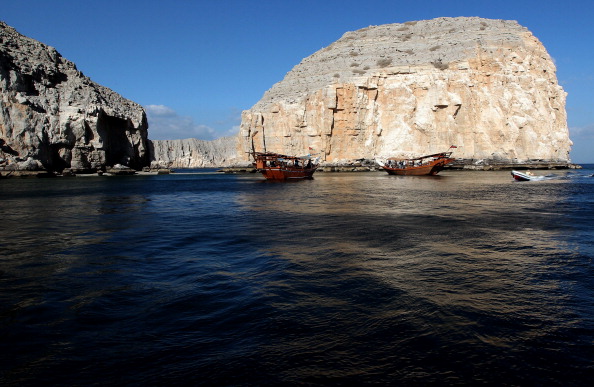European Union foreign ministers agreed on sanctions targeting Iranian oil exports and an assets freeze on its central bank in the latest attempt to pressure the country over its disputed nuclear program.
During their meeting on Monday, EU ministers ordered the ban on all new contracts for crude oil, petroleum, petrochemicals, and oil-drilling equipment, with existing contracts allowed to continue until July.
“Trade in gold, precious metals and diamonds with Iranian public bodies and the central bank will no more be permitted, nor will the delivery of Iranian-denominated banknotes and coinage to the Iranian central bank,” according to a statement. Most of Iran’s oil sales are conducted through the central bank.
The move comes weeks after the U.S. imposed a new round of sanctions also targeting Iran’s oil industry.
Most of Iran’s foreign revenue comes from exporting oil and such sanctions will likely put a damper on the country’s economy as the EU purchases around 20 percent of Iran’s oil exports.
Only China purchases more oil from Iran than the 27-member bloc. Japan, South Korea, and India purchase around 42 percent of Iran’s oil.
The EU also froze the assets of three high-level Iranian officials and eight entities operating inside the country.
Catherine Ashton, the foreign policy head of the EU, said the sanctions are not designed to provoke the Islamic Republic, but encourage further dialogue on its nuclear program. The sanctions will “make sure that Iran takes seriously our request to come to the table and meet,” she added.
“Iran has the opportunity to come forward not just to talk, but to have some concrete issues to talk about,” she added. “It is very important that it is not just about words; a meeting is not an excuse, a meeting is an opportunity and I hope that they will seize it.”
The agreement allows for a review before May 1 of the sanctions’ economic impact on EU countries, including Greece and Italy, which are more reliant on Iranian oil.
British Foreign Secretary William Hague said Monday’s sanctions “show how serious EU member states are about preventing nuclear proliferation,” adding that the Islamic Republic has continued working on its nuclear enrichment program, according to a published transcript. Although Iran claims its nuclear program has no military application, according to Hague, the secret enrichment program at the Qom underground site has no civilian use.
Threat at Strait of Hormuz
Some Iranian politicians responded with threats via state-run media agencies, with one saying Iran should close down the strategic Strait of Hormuz in retaliation.
Approximately 20 percent of the world’s oil trade and a third of the world’s liquefied natural gas transits through the Strait.
Mohammad Kowsari, an Iranian lawmaker who heads the Iranian National Security and Foreign Policy Committee, was quoted by state-run Press TV as saying Iran will “definitely” close the Strait and the “U.S. and its allies will not be able to reopen the strategic waterway.”
According to an analysis by the Center for Strategic and International Studies earlier this month, “most analysts regard such action as a low-probability (albeit high-impact) event” for a variety of reasons.
The main reason is that closing the strait would also choke Iran of its ability to export any oil, its main source of revenue. It could also send the country’s best customers, for example China, shopping for oil elsewhere. Moreover, because it would deny Iran of its import route for many other goods, closing the Straight could hurt the local economy more than the sanctions would.
Another Iranian lawmaker, Energy Commission member Seyed Ali Adiani told the semi-official Fars News Agency that sanctions are “just a propaganda by a number of the U.S. and European politicians and will have no effect on Iran’s economy.”
Several weeks ago, Iran had threatened to close the Strait and the U.S. retaliated by saying that it would not allow the Islamic Republic to do that, sending a U.S. aircraft carrier USS Abraham Lincoln to the waterway that arrived last Sunday.






